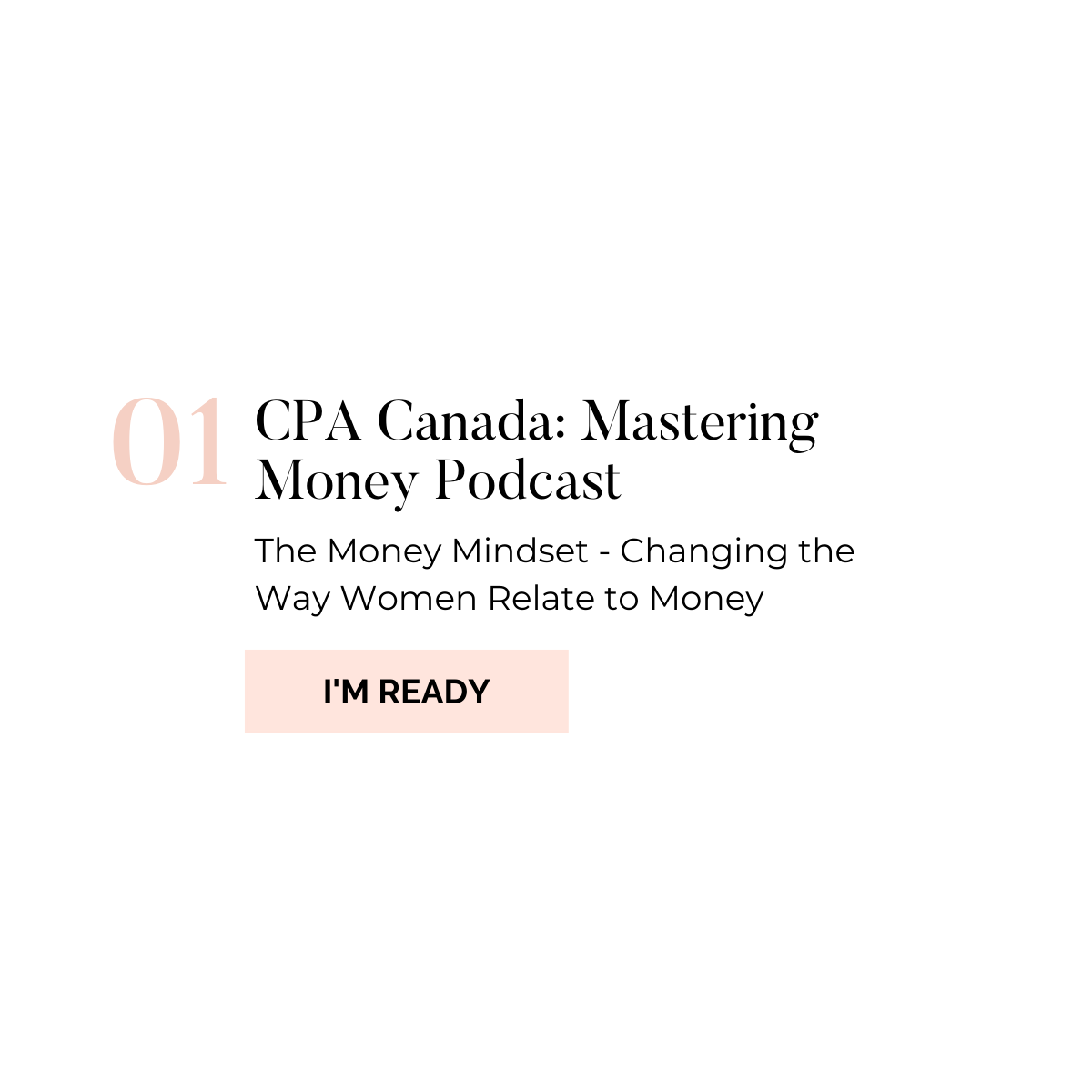Finance Basics - What Everyone Needs to Know
“Women just need to start having conversations about money - then they would know they’re not alone.”
Money. It’s what makes the world go around but at the same time it also has the ability to stop people dead in their tracks. In both my professional and personal life, I have the same conversations over and over again. People don’t know what to do with money; whether it’s having too much of it (that’s a good problem!) or not having enough. Women often feel uncomfortable talking about what they know, or don’t know about money. But it is my mission to change that. Conversations about money need to be had whether it’s at a table with your girlfriends or at a table with your parents. We just have to start, that’s the first step. I’ll go first. In this blog I’m going to break down some common and not so common points about your finances - what you need to do (right now!) and what you can actually stop stressing about.
Know the true meaning of Financial Literacy
Such a cool sounding buzzword, right? Makes you feel all accomplished and educated when you use it in a sentence. Sadly, people are more familiar with the word than what it actually means. Financial literacy literally means financial knowledge. How well do you know how to make your money work for you? Doesn’t that definition feel a whole lot less intimidating? It doesn’t mean that you have to have this guru level of knowledge. If you know how to take your paycheque and put it towards your family’s current and future financial needs, congratulations, you have financial literacy. We often think we need to know it all before we can feel financially confident. Confidence is built over time, so make a plan to learn a little each month. We’ve got lots of content on our Blog or check out one of our coaching programs.
Get comfortable with money
Women are uncomfortable with money. No, it in fact isn’t just you. Women in general have a discomfort about money. And shocking, it stems from our childhood. We subconsciously pick up what happens in the home especially in a generation where women stayed home, didn’t work and therefore most often, didn’t handle the family finances. This dynamic of working man = money manager may never have been discussed with you but sometimes the unspoken words send the loudest messages. I recently had a conversation with a client who shared that growing up she was never allowed to get a job, whereas her brothers were able to start working while in high school. She recalled landing her first job, living at home, not paying rent and ‘always being taken care of’. Now in her 40’s she struggles with taking care of herself and her daughter financially, while her brothers seem to have quite different financially successful lives.
There is a disconnect between women and money and although some of this was wedged within us during our childhood, society plays an equally important role. From the Disney movies of finding our Prince Charming who will take care of all our financial needs, to the subtle marketing messages on children’s toys and games. Boys are taught to be aggressive, confident, go-getters while girls are taught to fit in, be polite and polished and never outshine or be “too much”. It’s no wonder we struggle with our self-confidence and self-worth and that simply spills over into our financial life as well.
“We don’t talk about money because we’re still unraveling past generational messages that shaped our current money story.”
A lot of the shame we carry around money in our adulthood is ingrained in us and why we keep the shame block moving forward is because we’re too scared to have these conversations out in the open. We need to start normalizing the fact that we’re all confused and we don’t know any better and that it’s okay.
Stop stressing about student debt
Say it with me, “I (insert name) do solemnly swear to stop stressing about my student debt.” I wish it was really that easy but honestly, it’s really that easy. There’s so much guilt around having student debt but that debt is actually a form of good debt - yes there is such a thing. Student debt, like a mortgage, is a good use of debt because it creates assets for you. You chose to invest in your future by furthering your education. That education can create a larger trajectory for your career which in turn means you can earn more money. More money = debt paid off faster. Mortgage debt falls into the same category of a type of debt that created an asset for you. The attitude of “you’re supposed to get a mortgage and pay it off first” is a dated mindset and no longer applies.
Bad debt or consumer debt is actually what needs to be tackled first. Here’s how to address it:
Separate your good debt and bad debt
List out the balance owing, interest rate and monthly minimums on each of your bad debts
Create a plan to either a) tackle the highest interest debt first or b) tackle whichever one you can clear out first
Most people think it's going to take them a long time to get out of debt. That's why we avoid it, because we think it's going to take us forever to pay it off. But it’s actually our avoidance that creates that reality. I dare you to actually sit and create a debt repayment plan and see for yourself how long it will take you to become debt free. I bet, it’s much sooner than you think!
Create & Follow a Budget
A budget is more than just a spreadsheet filled with numbers - a budget is a roadmap that tells your money where to go and tells YOU if you’re staying on the right path to achieve your financial goals or if you (and your spending) are taking you to a totally different destination. To create a budget that is going to be a true reflection of your current situation, pull all your bank statements (including credit cards!) for the past three months and categorize the transactions. This will tell you where your money has been going. Then decide where you want your money to go moving forward. This becomes your new budget. A budget isn’t just monthly expenses though, it must include all of the places your money “must go” including towards your savings goals and debt goals.
I prefer to call my budget an intentional money plan because I believe in balance. That’s what I teach and it’s what I preach. Most people think - oh I’ve just got the debt so I’m going to put all my money towards the debt. But what about other expenses that come up in the interim? If you don’t have savings, you’re just perpetuating the debt cycle. Create a budget that captures your entire financial life.
Have a Weekly Money Date
Some people check-in on their money at the end of the month, but if you’re already over budget in one category, it’s too late to make adjustments. That’s why I suggest weekly money dates which are more of a proactive solution to money management as opposed to a reactive one. A weekly check-in allows you to update your budget based on the previous week’s numbers and have an almost real time snapshot of how you’re doing, financially.
Weekly money dates are also a great way to get the kids involved in the family’s budget and savings. We think we can’t include them but there are so many ways that you can include your kids in your family money conversations. Imagine if that was ingrained in us.
Let abundance flow in AND out
Money is energy. We often see how money comes to us as our source, for example your job/business etc., but those are actually the channels through which you receive the abundance. If you see them as channels, you open yourself up to receiving from more channels which means that more can come to you. I live by the mindset that if abundance flows to me, I must also allow it to flow through me, by giving it to others. That’s how you live within the energetic exchange of money. . By not sharing the abundance, you're closing your fist and holding onto that money, and that results in a scarcity mindset. And you already know - scarcity blocks abundance! You should actually have charity or donations as part of your budget. That way you’re already putting the money aside and it will be easier to give at the end of the month or whenever you decide to make your donations.
Money doesn’t have to be paralyzing. We see it as a tangible, a transaction when it’s actually an energy exchange. It’s completely within your control to make your relationship with money a more realistic and impactful one. Create a plan, that’s your first step because a dream without a plan is just a wish. Check in on your money every week; setting the goals and not following up will result in you failing. Make talking about money a norm in your household or with your girlfriends, because the more we can talk about it the more we can empower each other to live in our financial worth.
WANT TO RELEASE THE LIMITING BELIEFS THAT ARE BLOCKING YOUR ABUNDANCE?
JOIN THE UNBLOCK ABUNDANCE (SELF-GUIDED) COACHING PROGRAM
PREVIOUS POST >>

























A pack mentality leads to misinformation.
A discussion on how you can take steps to best invest in yourself.